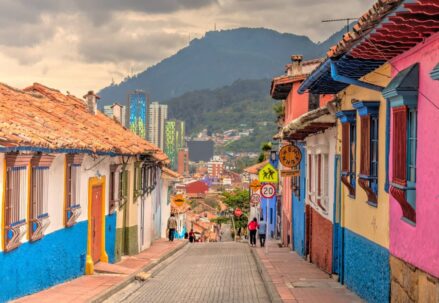The inherent politeness of Colombians, often bordering on deferential flattery, presents a fascinating study in contrasts. From commercial encounters to hospitality settings, the language of service is steeped in expressions that echo a bygone era of Spanish formality.
Colombian Courtesy: A Layered Tradition
Entering any service-oriented space in Colombia, one is likely to encounter a range of formal greetings, such as “a la orden” (at your service), “su merced” (your mercy), and inquiries about one’s preferences or well-being with phrases like “que le provoca?” or “como amanecio?”. These phrases, relics of colonial Spanish, underscore a deeply ingrained class consciousness within the society.
The Language of Hospitality: From Formal to Familiar
Bogotá, often celebrated as the “Athens of South America,” prides itself on its educated populace and the courteous exchange that defines its public life. This societal politeness, initially comforting to visitors, reveals complex layers of class distinction and social dynamics on closer examination.
A Personal Encounter: Challenging Etiquette Norms
The author recounts an experience that starkly contrasts the usual polite exchanges — a phone call from a bank employee that breaks from formalities to inquire if he was the “mono” (a term colloquially used for Caucasians but meaning “monkey”). This informal, and arguably disrespectful, mode of address prompts a reflection on the variances of politeness and the appropriateness of slang in professional interactions.
The Implications of Slang in Professional Settings
The incident highlights a tension between the ingrained courteousness of Colombian society and moments where informality breaches expected professional standards. It raises questions about the balance between respect and overfamiliarity, especially in a business context where such distinctions matter significantly.

Key Elements of Colombian Social Etiquette
- Formal Greetings: Common phrases include “a la orden” (at your service) and “su merced” (your mercy), reflecting a tradition of deference;
- Class Awareness: The use of certain expressions indicates a deeply rooted consciousness of social hierarchy;
- Politeness as a Cultural Norm: Extensive use of polite forms and expressions characterizes everyday interactions;
- The Role of Slang: Slang terms like “mono” for Caucasians reveal the informal side of Colombian Spanish;
- Professional vs. Personal Language: There is a clear distinction between the expected formalities in professional settings and the casualness of personal interactions;
- Adaptation to Modern Contexts: While traditional etiquette remains prevalent, contemporary Colombian society navigates evolving standards of respect and informality.
Comparative Analysis: Colombian Etiquette vs. Global Business Etiquette
| Aspect | Colombian Etiquette | Global Business Etiquette |
|---|---|---|
| Greeting Formality | High, with specific phrases denoting respect | Varies, generally formal with less emphasis on servitude |
| Class Consciousness | Evident in language and interaction | Less pronounced, with a focus on equality |
| Use of Slang | Common in informal settings, occasionally in professional contexts | Generally avoided in professional settings |
| Politeness Norms | Extensive, sometimes to the point of seeming obsequious | Balanced, with a focus on straightforwardness |
| Professional Language | Often maintains a level of formality, even in informal settings | Clear distinction between formal and informal language |
| Cultural Adaptation | Traditional values deeply influence modern practices | Rapid adaptation to global standards of communication |
This table contrasts the specificities of Colombian social and professional etiquette with general trends in global business etiquette, highlighting the unique emphasis on politeness, class awareness, and the balancing act between formality and informality in Colombia.
Conclusion
Understanding the multifaceted nature of politeness and formality in Colombian culture requires navigating a delicate balance between traditional respectfulness and the evolving dynamics of modern interactions. This exploration into the contrasts of Colombian etiquette not only sheds light on societal norms but also invites reflection on the broader implications of language and class in shaping social interactions.





